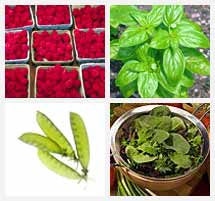Cyclospora has sickened at least 155 people in Texas since mid-June, according to the Texas Department of Health and Human Services. Health officials have not yet determined the food source behind the outbreak.
 Past outbreaks have been linked to fresh produce including raspberries, snow peas, basil, cilantro, mesclun and salad. Cyclospora can be difficult to wash off, but washing produce under cold running water and then drying it is one of the best ways to reduce contamination from parasites and bacteria.
Past outbreaks have been linked to fresh produce including raspberries, snow peas, basil, cilantro, mesclun and salad. Cyclospora can be difficult to wash off, but washing produce under cold running water and then drying it is one of the best ways to reduce contamination from parasites and bacteria.
The cyclospora parasite is transmitted when an infected person passes immature oocysts in their stools which then contact food. If the oocysts are ingested in their immature state, they do not cause illness. However, if they have a chance to mature while on food and are then ingested, they cause an infection called cyclosporiasis that can last up to two months. Contamination can occur through unsanitary conditions at a farm, processing plant or distribution center; or from fields where human waste was used as fertilizer or fields contaminated water was used for irrigation.
Some readers who have had cyclosporiasis describe experiencing diarrhea that is so frequent and forceful they have missed days of work. In addition to diarrhea, other symptoms of cyclosporiasis include loss of appetite, weight loss, cramping, bloating, increased gas, nausea, fatigue,vomiting and low-grade fever. See a doctor if you have these symptoms.




